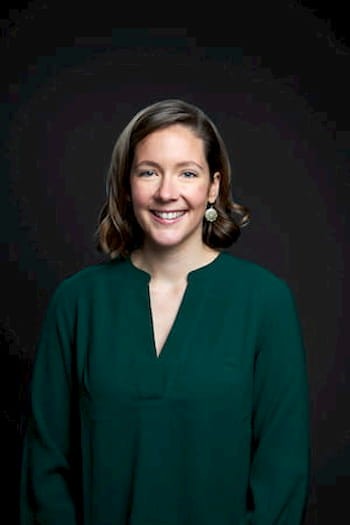

Doctoral Candidate
Comparative Theology
Minor: Systematic Theology

Stokes Hall N418
Telephone: 617-552-8298
Email: hopkinma@bc.edu
Teaching Fellow
Instructor of Record
Teaching Assistant
Megan Hopkins is a doctoral candidate in comparative and systematic theology at Boston College. She investigates theologies of revelation within Christianity and Islam. Further, her work attends to theological anthropology as related to contemplative, liturgical, and disability theologies; interreligious education; and phenomenology.
The foundation of Hopkins’ primary research relies on the comparison of Jesus Christ and Qur’an each understood as Word. Within the field of comparative theology, newly surfaced sites for study and methodological engagement include ritual, lived religion, and embodiment. In her study “Embodying the Word: How to live the Eucharist everyday as animated by dhikr,” Hopkins takes ritual and embodiment seriously, pursuing the question: how might Catholics continually remember and respond to the Word-made-Flesh as received in the Eucharist? As a confessionally Catholic comparative project, engagement with Sufi dhikr fosters a recovery and reinterpretation of how Eucharist may cultivate a Catholic spirituality grounded in resourced 14-16th c. contemplative practices, and may be integrated in everyday modern life.
This constructive comparative theology offers two methodological contributions. First, this study adds a unique voice through a distinctly interdisciplinary method, synthesizing the insights of phenomenology and ritual studies within the context of a Sufi and Catholic comparative theology. Second, it continues to develop Hopkins’ method of “embodied epistemology,” where affective knowledge is already present as a way of knowing within each human person—regardless of theability to articulate this via traditional (academic) means. This embodied knowledge can be cultivated towards the transcendent through ritual practices, training persons to receive the Divine more intimately in and through their already knowing body minds.
At Boston College, Megan serves as a Resident Minister, providing spiritual support and care for a community of over 500 undergraduate students. Throughout her master’s program and early doctoral studies, Megan served as the Director of Education and Outreach at Mosaic: Interfaith Youth Action. There, she wrote the interfaith experiential curricula for the organization, designing programs that equipped young people to work together across differences—particularly through experiences of dialogue—so that they may cultivate communities of justice, equity, and peace. This work animates her theological lens, rooting reflection in praxis and lived experience.
Hopkins holds a M.T.S. from the Gloria L. and Charles I. Clough School of Theology and Ministry at Boston College, as well as a B.A. and B.A.H. from Villanova University.